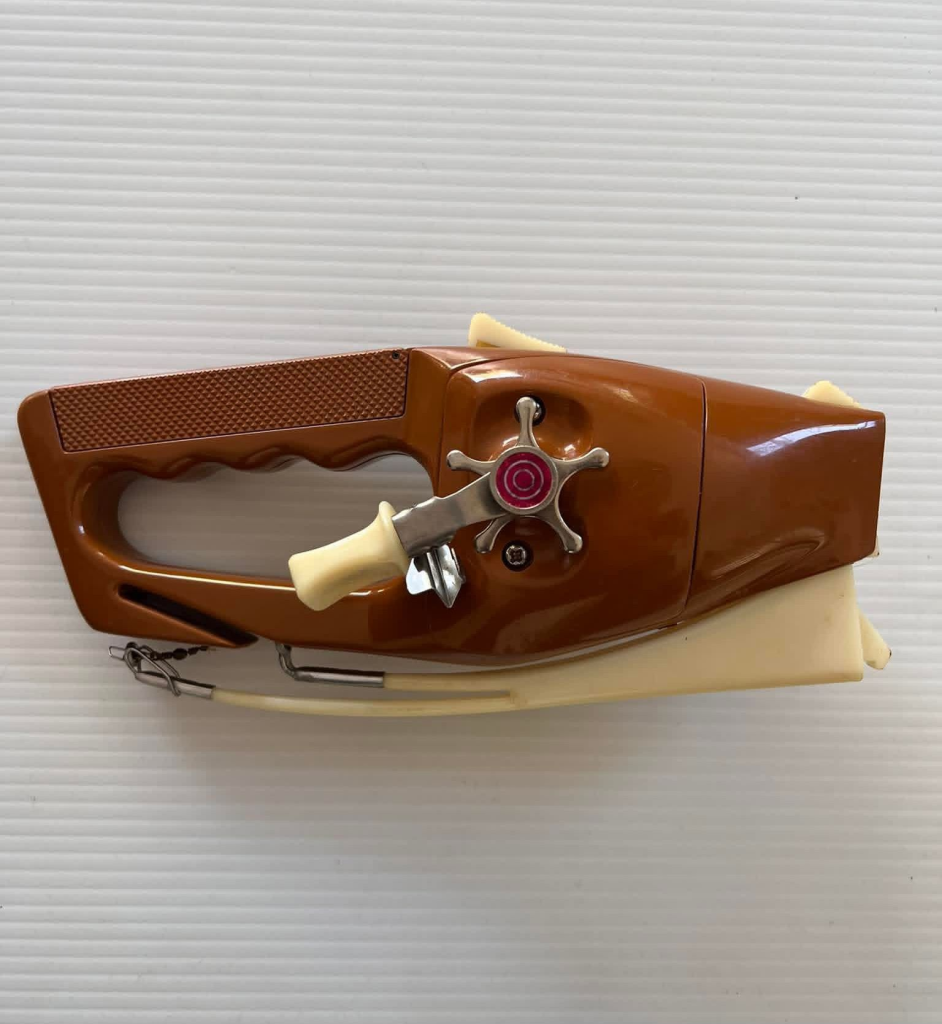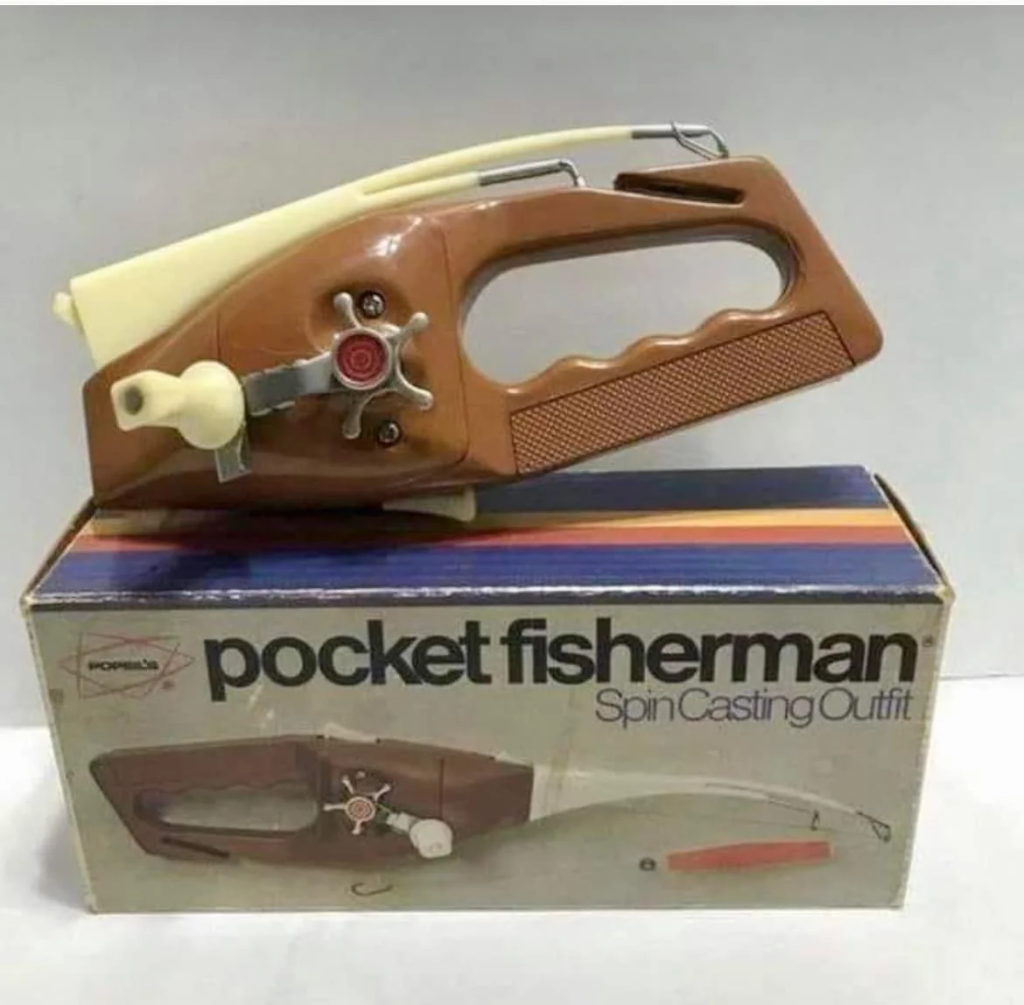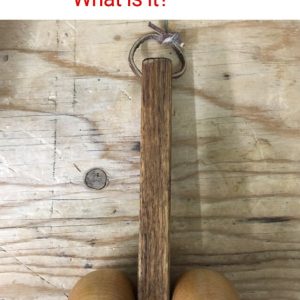The Pocket Fisherman is a compact fishing rod and reel combo that turned heads when it was first introduced in the 1970s. Created by Ron Popeil, the mastermind behind Ronco and its line of “as-seen-on-TV” gadgets, this curious contraption promised to make fishing easier, more portable, and accessible to just about anyone. Marketed as “the fishing rod that fits in your pocket,” it was a bold claim that instantly captured public curiosity.

The Vision of Ron Popeil
Ron Popeil was a genius at creating products that blended practicality with a touch of novelty. From the Veg-O-Matic to the Showtime Rotisserie, he had a knack for making everyday tasks feel easier and more exciting. The Pocket Fisherman fit perfectly into his catalog: a tool that combined convenience, portability, and a bit of fun. His infomercials painted it as the must-have gadget for casual anglers, campers, or anyone who wanted to fish without lugging around bulky equipment.
Video: Popeil Pocket Fisherman Commercial 70’s
How the Pocket Fisherman Works
At its core, the Pocket Fisherman is a folding fishing rod built into a pistol-grip style handle. When folded, it shrinks down to about the size of a large flashlight, making it easy to tuck into a glove compartment or backpack. But don’t let the size fool you—it’s equipped with:
- A built-in reel for casting and reeling in catches.
- Tackle storage in the handle so hooks, lures, and sinkers are always on hand.
- A fold-out rod arm that extends when you’re ready to fish.
It was never designed to reel in monster fish, but for small ponds, rivers, or spontaneous fishing trips, it did the job surprisingly well.
Why It Became a Cultural Icon

The Pocket Fisherman wasn’t just about fishing—it was about the lifestyle it symbolized. Imagine being able to pull over at a lake on a road trip, pop open the glove compartment, and start fishing in minutes. That sense of spontaneity was part of its charm.
Its over-the-top marketing also helped cement its legacy. Popeil’s enthusiastic demonstrations made the Pocket Fisherman seem like a revolutionary product. Whether you thought it was brilliant or a gimmick, you couldn’t forget it. The name itself became shorthand for quirky but fun inventions.
Practical Use or Gimmick?
Critics often laughed at the Pocket Fisherman, calling it impractical or even a toy. Serious anglers dismissed it as a novelty item, pointing out its limited strength and short casting range. Yet others genuinely enjoyed using it. For casual fishing, it worked well enough—and for many, that was all that mattered.
Video: Buy Happier: The Pocket Fisherman
The divide between fans and skeptics actually helped fuel its popularity. People bought it out of curiosity, nostalgia, or the simple joy of owning something that promised to make fishing “as easy as flipping a switch.”
The Pocket Fisherman Today
Decades later, the Pocket Fisherman is still around. Ronco has reissued versions over the years, and vintage models are sought after by collectors. Nostalgia plays a big part—owning one is like holding a piece of quirky American pop culture. For retro enthusiasts, campers, or even those who just want a conversation piece, the Pocket Fisherman continues to deliver.
It has also become a symbol of clever marketing. Popeil’s ability to create a sense of wonder around such a simple idea reminds us of the power of storytelling in product design and advertising.
Why People Still Remember It Fondly

The enduring legacy of the Pocket Fisherman isn’t really about the fishing. It’s about innovation, fun, and the way one product can capture the imagination of an entire generation. It brought a sense of adventure into people’s daily lives, offering a chance to fish “anytime, anywhere.” Even if you never caught a single fish with it, owning one made you feel ready for the possibility.
Conclusion
The Pocket Fisherman may not have revolutionized fishing as a sport, but it definitely made history as one of the most memorable “as-seen-on-TV” inventions of all time. It combined practicality with novelty, proving that sometimes the quirkiest ideas are the ones we remember most. Whether you see it as a clever gadget or a nostalgic gimmick, the Pocket Fisherman remains a true cultural icon of the 1970s—and a reminder that innovation doesn’t always have to be serious to make a lasting impact.


